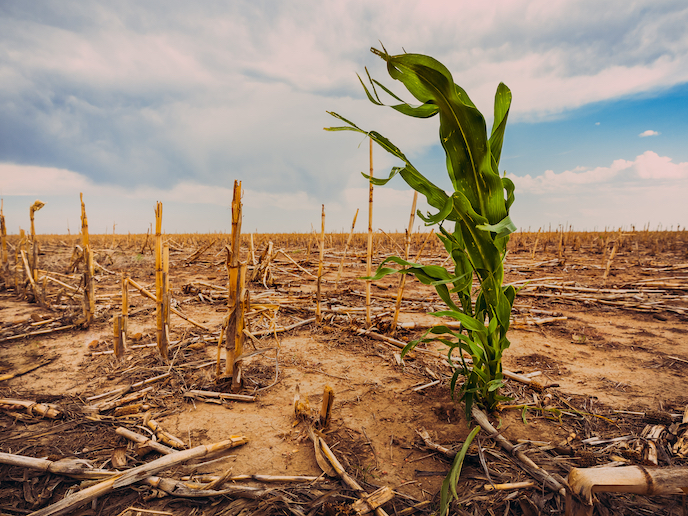Creating a new generation of climate-resilient crops
From changes in rainfall patterns to higher temperatures, severe heatwaves and lengthy droughts, climate change is having a major impact on crop health and productivity. Any change in productivity could have catastrophic consequences for our ability to produce enough food to feed the world’s rapidly growing population. “What we need is a new generation of crops that can adapt to our rapidly changing climate,” says Etienne Bucher, a researcher at Agroscope, the Swiss centre of excellence for agricultural research. With the support of the EU-funded BUNGEE project, Bucher is leading an effort to climate-proof such staple crops as wheat and rice. “Climate change is happening so fast that traditional crop breeding can’t keep up,” he explains. “To accelerate the process, we’ve developed and tested a novel crop breeding method that unlocks the plant’s natural ability to adapt to climate-related stresses.”
The plant biologist’s equivalent of a lab mouse
To start, researchers looked at how climate change-related stresses impact the plant genome and, specifically, transposable element activity. A transposable element is a specific sequence found in DNA that can change its position within a genome. “We tested our breeding method using a plant model called Arabidopsis, which is essentially the plant biologist’s equivalent of a laboratory mouse,” notes Bucher. What researchers found was that their method works. “We successfully changed how a plant responds to heat stress and improved its ability to resist droughts,” adds Bucher.
Plant genomes are more dynamic than initially thought
It’s one thing to adapt a plant model, the challenge is transferring those findings to actual crops, which have much larger and far more complex genomes. But that’s exactly what this European Research Council supported project did. “It turns out that plant genomes are much more dynamic than what was generally assumed,” remarks Bucher. “What we discovered is that plants have the ability to perceive stresses and then transfer this information to the genome, which then starts the adaptation process.” With this information in hand, the project applied its breeding model to wheat and rice to screen the treated plants for tolerance to climate change-related stresses.
Legal ruling puts next generation of crops on hold
Although these results have the potential to accelerate the breeding of climate-ready crops, European farmers may have to wait. “Even though farmers desperately need these next-generation crops, a ruling by the Court of Justice of the European Union is preventing this from happening,” says Bucher. As Bucher explains, the Court recently stipulated that all novel crop breeding methods produce genetically modified organisms (GMOs), which are heavily regulated. As a result, the project had to stop all field trials. “Even though the BUNGEE method at no point makes use of any foreign gene but rather accelerates a natural process, according to this ruling, the end result is a GMO,” he adds. Despite this setback, Bucher remains confident that the BUNGEE project’s findings will ultimately prevail. “We need tools to rapidly adapt our crops to a changing environment,” he concludes. “While our work has enabled crop breeding to catch up to climate change, we now need our regulatory environment to catch up to the science.”
Keywords
BUNGEE, crops, crop breeding, climate change, science, heatwaves, drought, food, plant genome, transposable element, DNA, Court of Justice of the European Union, GMO

